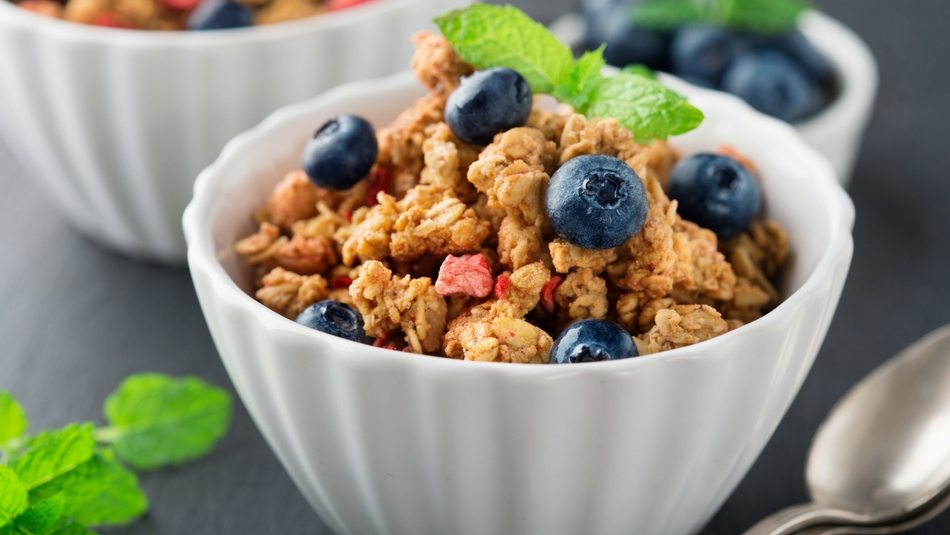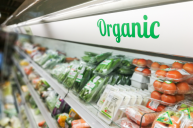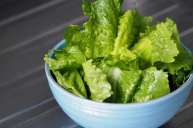Last week the entire continent of Europe banned harmful pesticides and this week internal emails between FDA researchers have surfaced an influx of glyphosate in foods such as granola bars and wheat crackers. The knowledge that pesticides could be harmful and cause environmental health concerns is nothing new; however, when you see that weedkiller is making its way into your everyday foods, it's a little more more than daunting to realize how much of the poison you are actually eating.
Videos by Wide Open Country
Glyphosate, very scientific and scary sounding, is a widely used herbicide and goes by the name Roundup, Rodeo and Pondmaster to consumers. It is a herbicide used on plants such as grasses, weeds and woody plants to kill unwanted weeds in your garden. According to the Roundup site and Scott's Miracle-Gro, there have been over 800 studies about Glyphosate. And as impressive as that looks, it doesn't specify whether the results were good or bad-simply that there are 800 studies about the active ingredient.
Traces of Glyphosate
Recently, The Guardian released emails written between scientists at the US Food and Drug Administration using the U.S. Right to Know, a nonprofit organization that shows the transparency behind the United States food system. The organization utilized the Freedom of Information Act (FOIA) to obtain the public emails. According to the report, the FDA is having trouble finding foods that do not contain trace amounts of the herbicide glyphosate.
Brought into the market by the Monsanto company, the chemical is now one of the most widely used herbicides in the country according to Quartz. Farmers have become dependent on the chemical to ensure their food crops grow strong, using over 200 million pounds of the stuff each year. However more and more consumers are becoming aware of the chemical and the threats it may have. In 2014, the Journal of Environmental Research and Public Health published a study demonstrating the relationship between the chemical and a risk for non-Hodgkin lymphoma for workers in a field treated with glyphosate-based herbicides.
There are currently 400 law suits pending against Monsanto in regards of themselves or loved ones developing cancer from the chemical. The U.S. Environmental Protection Agency (EPA) on the other hand has released a draft of their report stating, "glyphosate is not likely to be carcinogenic to humans. The Agency's assessment found no other meaningful risks to human health when the product is used according to the pesticide label."
The first of the emails, which was written on January 4, 2017, shares that Richard Thompson, a chemist at the FDA in Arkansas was testing for amounts of glyphosate in various foods such as granola and crackers. You can read the whole string of emails here.
Testing for Glyphosate
Annually the FDA tests for various pesticides in food to test for illegal levels. Although glyphosate has been in use for over 40 years (which Roundup brags about on their site) this is the first time to FDA has ever tested for the chemical. The Guardian attests this to the Government Accountability Office (GAO) and the recent testing from the International Agency for Research on Cancer (IARC) which classified the chemical as a probable human carcinogen.
While the phrase "probable human carcinogen" sounds threatening, you have to take it with a grain of salt. Other probable carcinogens on the list include Acrylamide which is a chemical compound in french fries, potato chips and coffee. It's also a chemical that appears through the Maillard reaction in bread, forming the crust.
Just a month ago California Superior Court Judge Elihu Berle ruled that signs must be posted at coffee establishments to share that the roasting process of coffee beans may cause cancer. The American Cancer Society rebutted, stating in a recent article that while there was a risk in cancer in laboratory rats using the chemical of acrylamide, naturally occurring acrylamide in foods has no association to the risk of several cancers. The tests were also inconclusive because, "smokers also tend to be coffee drinkers, it is difficult to completely account for tobacco use in studies of coffee and strongly tobacco-related cancers."
The official findings of the FDA and EPA will be released in 2019 regarding the danger or lack there of glyphosate poses on human health.




